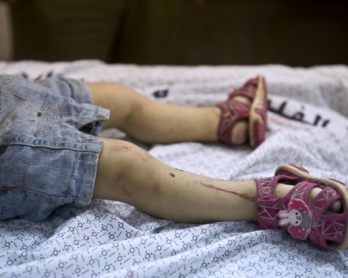A day of hell in Aleppo
Aleppo, Syria, May 2, 2016 -- I honestly think that the war in Syria will never end. I have been photographing the war in my native Aleppo for three years now. Last Thursday was one of the most hellish days that my city has endured.
I took the images of the toddler rescue in the Al-Kalasa residential district, controlled by the rebels and besieged by regime forces. When the air raid struck, I was some hundred meters away, with the civil defense vehicles. I ran toward the point of impact to shoot with my camera.
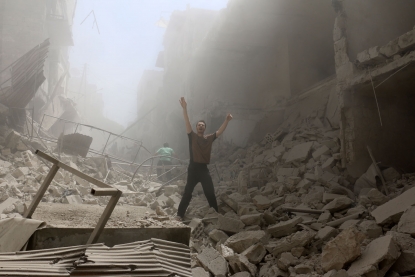 (AFP / Ameer Alhalbi)
(AFP / Ameer Alhalbi)When an airstrike hits here, it’s usually the neighbors who are the first to help the wounded. Rescue workers from the civil defense, many of whom have been trained in Turkey, take over once they arrive on the scene. That’s how it happened last Thursday as well.
When we got there, a woman was crying for help from inside the damaged apartment building. She, her husband and their baby were trapped in what was left of their second-floor apartment and had no way of getting down.
The rescue operation got underway very quickly. The civil defence forces put a ladder to their apartment, to get the baby boy down first. Although their apartment was demolished, somehow the threesome wasn’t hurt. I shot the rescue of the boy and the family reunited. I don’t know what happened to them afterward, I have no idea who they are.
Last Thursday was a horrible day in Aleppo and the past week has been one of the worst that this wounded city has seen. Since the start of the regime offensive on April 22, more than 250 civilians have been killed in the bombings.
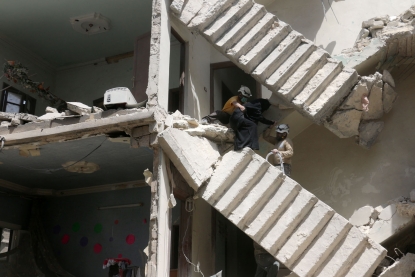 A woman is evacuated from a destroyed building after the airstrikes.
(AFP / Ameer Alhalbi)
A woman is evacuated from a destroyed building after the airstrikes.
(AFP / Ameer Alhalbi)The shelling of Aleppo throughout the war has left it without any kind of life. There are no restaurants, no cafes, no places of leisure and no trace of the rich cultural life that thrived in the country’s second city before this war. I’d say that Aleppo is one of the most dangerous cities in the world.
It’s hard to work as a photographer in Syria, it’s a dangerous profession. First, because you have to be in the thick of the action to get the best shots. But also, because many people are bothered by photographers and sometimes lash out at them. Last year, in the Al-Fardous neighborhood, a photographer had his camera broken by men who became enraged thinking he was photographing women.
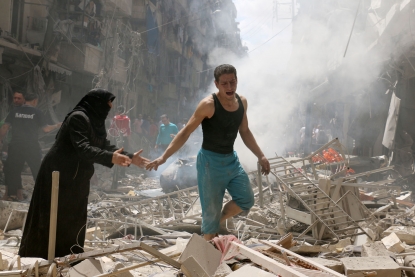 (AFP / Ameer Alhalbi)
(AFP / Ameer Alhalbi)Like everyone else, I’ve been personally affected by the fighting. I was wounded by two bullets in April 2012. My father has been wounded, as has my cousin.
Many of my friends have left for Turkey and then on to Germany. Last year I too thought about leaving, but eventually dropped the idea, stayed and continued working. I want to show the outside world the suffering being endured by the Syrian people.
This blog was written with Samar Hazboun in Nicosia and Roland de Courson in Paris and translated by Yana Dlugy in Paris.
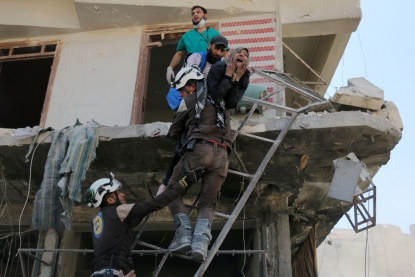 Residents evacuated after the airstrikes. (AFP / Ameer Alhalbi)
Residents evacuated after the airstrikes. (AFP / Ameer Alhalbi)





